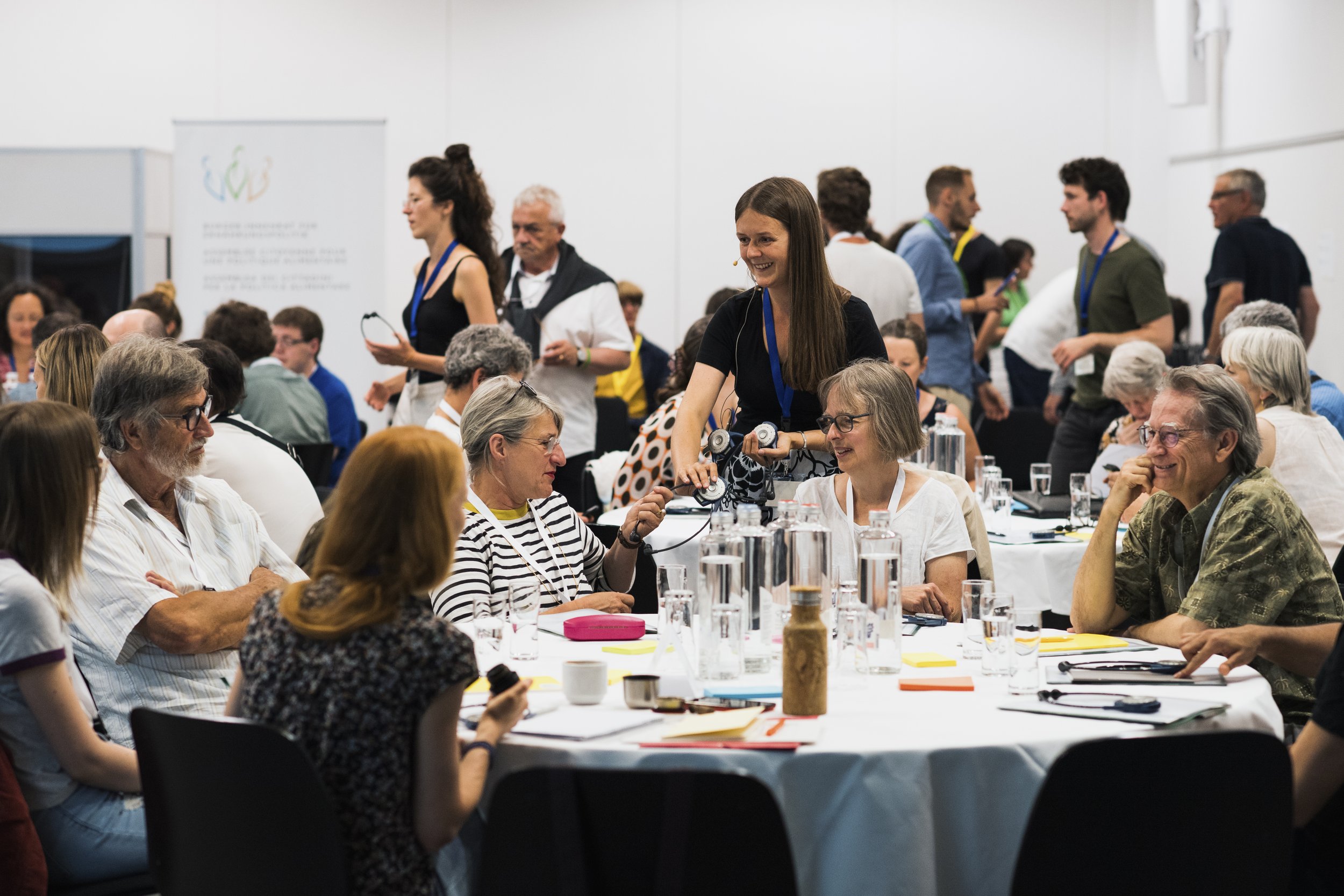
Citizens’ Assembly for Food Policy
The recommendations of the Citizens' Assembly for Food Policy are here!
After almost half a year, the time has come: On the weekend of November 5th and 6th, 2022, the participants of the Citizens' Assembly met in Zurich for the final weekend and decided on the final recommendations to politicians! All recommendations and voting results can be found here:
Why is there a need for a Citizens' Assembly for food policy?
What we eat and how we produce our food affects our planet and societies like no other human activity. Our food policy has an impact on the climate crisis, soil fertility, species extinction and the strain on water resources. In order to counteract these developments, Switzerland has committed itself to redesigning its food system.
With the Strategy for Sustainable Development 2030, the Federal Council advocates, among other things, a fundamental change towards a more sustainable food system in Switzerland. In order to develop strategies for this change, national dialogues were already held in 2021. The Citizens' Assembly for Food Policy is a continuation of these dialogues in a different way with the direct involvement of the Swiss population. The process is supported by the Federal Office for Agriculture (FOAG), the Federal Food Safety and Veterinary Office (FSVO) and the Federal Office for the Environment (FOEN).
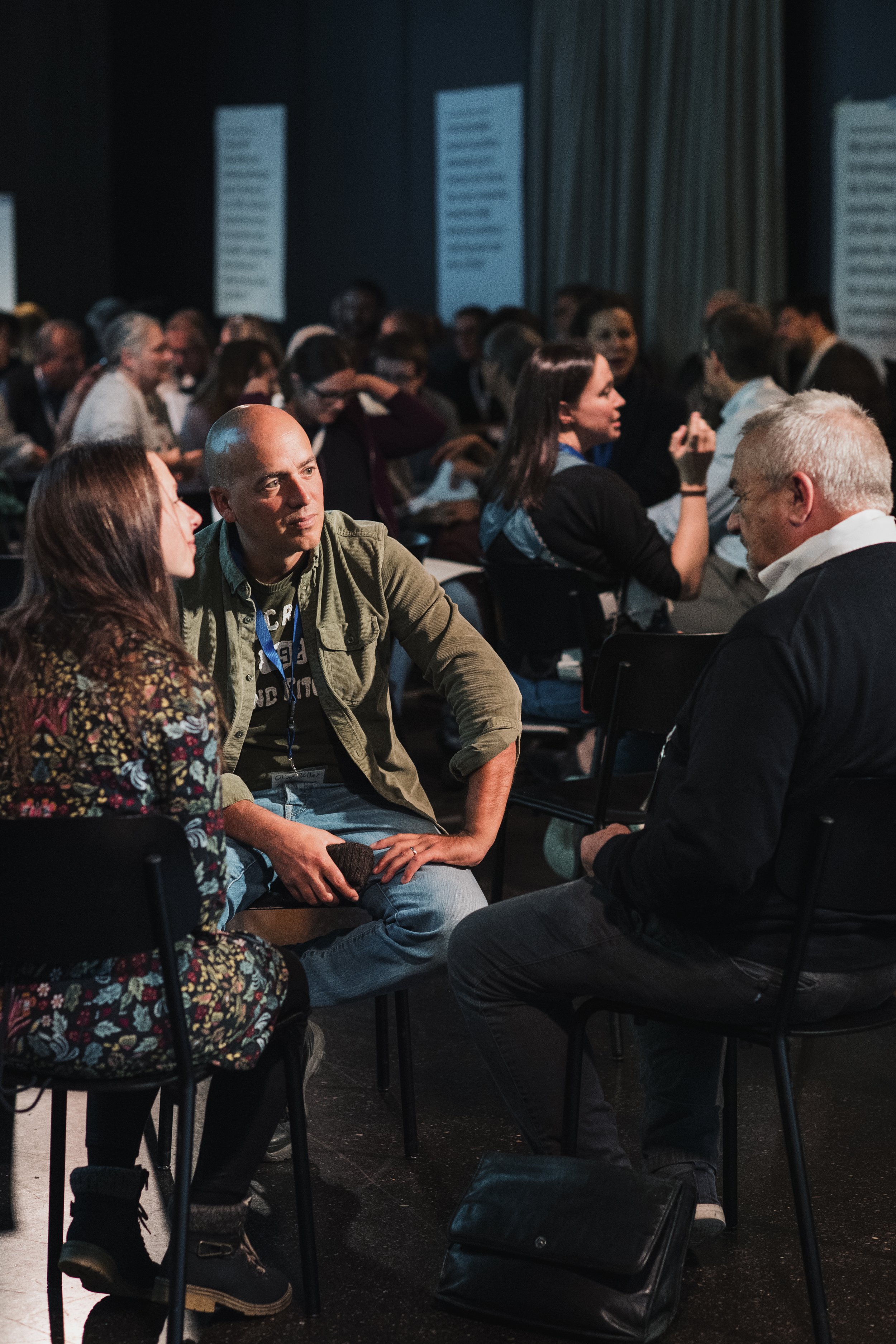
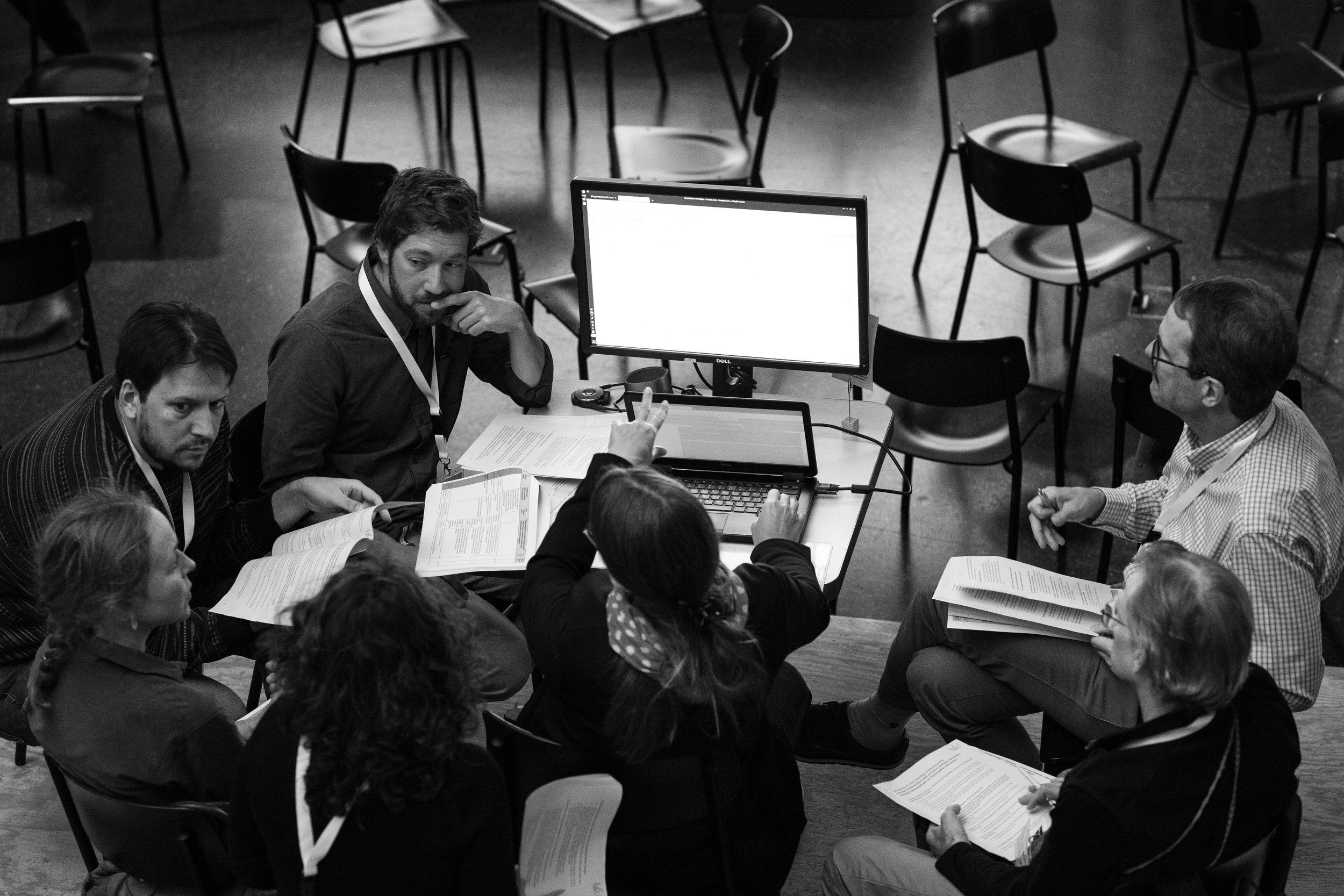
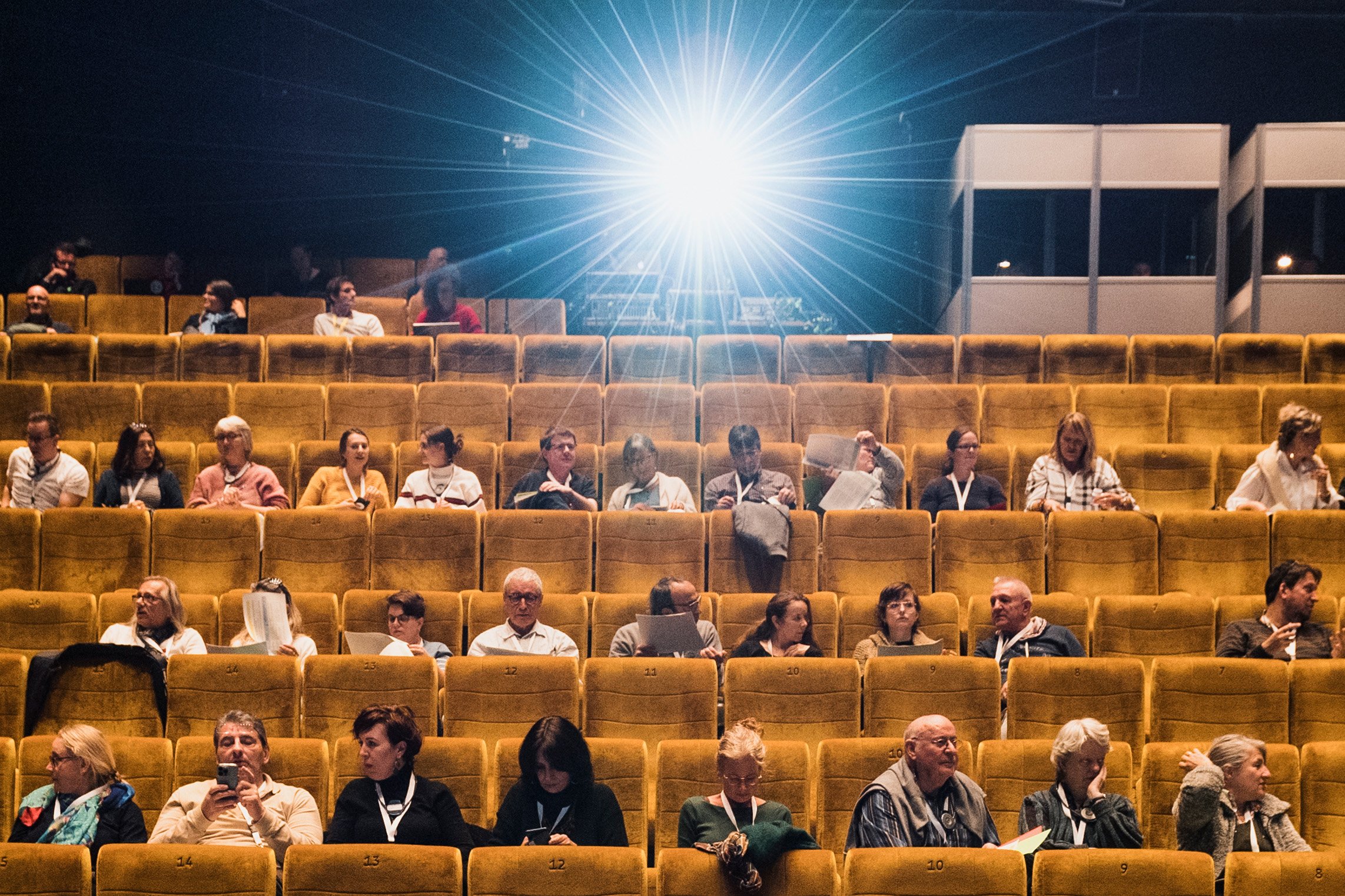

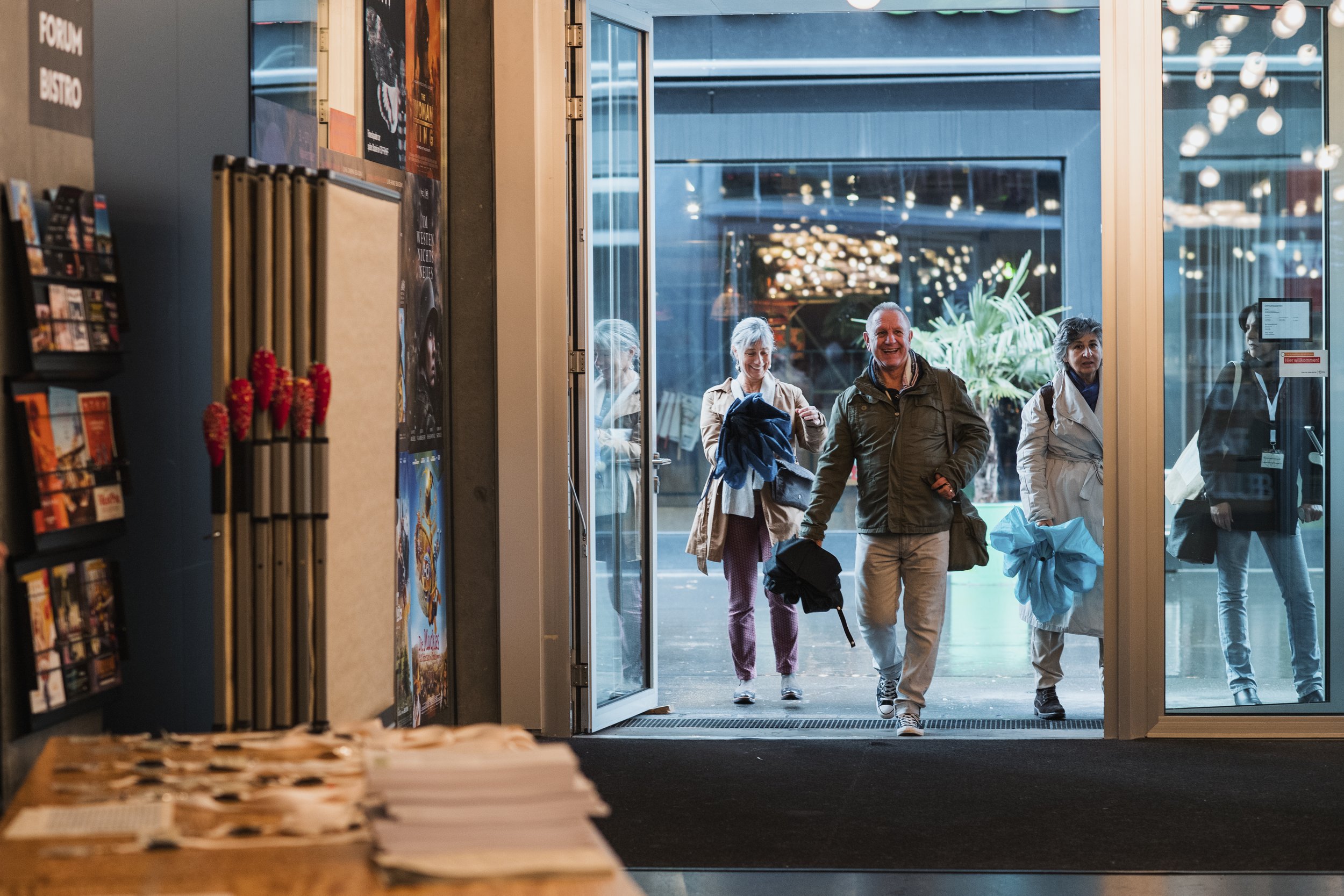
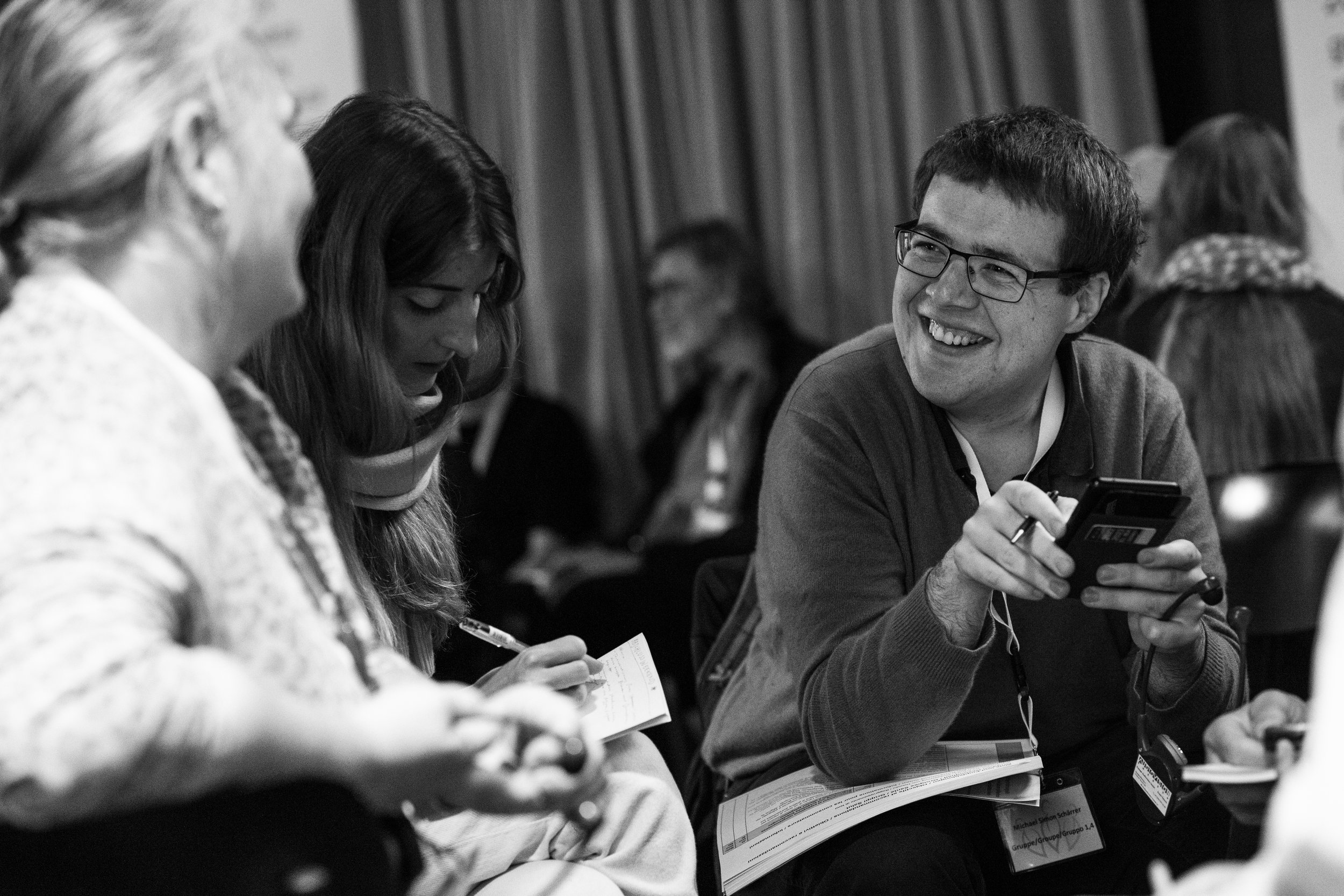
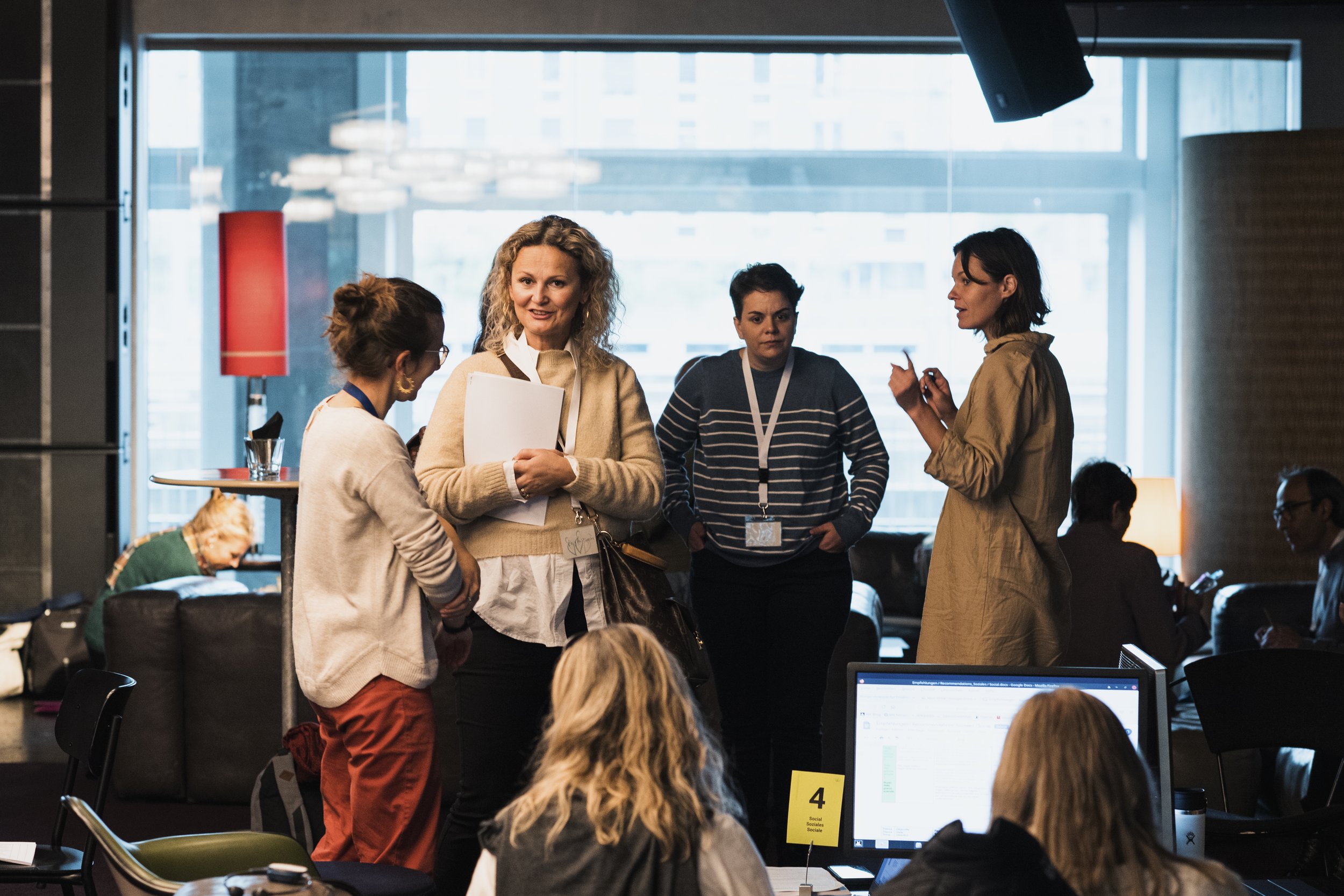
Bildrechte: Ernährungszukunft Schweiz. Fotografin: Caroline Krajcir, Zürich
"What should a food policy for Switzerland look like that will provide everyone with healthy, sustainable, animal-friendly and fairly produced food by 2030?"
What is special about Citizens' Assemblies is that the participants are drawn at random from the population. This is how people from very different backgrounds come together. For example, cooks sit next to kindergarten teachers, and pensioners next to young people. The idea behind this is that a group of very different people arrives at more diverse and widely accepted solutions than a group of people who are similar to each other. In this way, the recommendations developed by the Citizens' Assembly can serve as a valuable decision-making aid for politicians on complex issues.
Citizens' Assemblies are an enrichment and a supplement to the current political processes. They help to overcome social divisions and, in particular, to involve population groups more closely that are usually less politically involved.
The process
At the Citizens' Assembly for Food Policy, randomly drawn people who live in Switzerland come together and, in an open-ended format, explore the question of what a sustainable food policy in Switzerland could look like in 2030.
The group selected in this way should represent Switzerland as well as possible in terms of various characteristics such as gender, age, political attitudes, level of education or the distribution of the urban-rural population. At the end of the Citizens' Assembly, the participants vote on the jointly developed recommendations, which are then handed over to politics and administration and made available to the general public.
Organisers
The Citizens' Assembly for Food Policy is part of the "Ernährungszukunft Schweiz" project of the foundation Biovision, the association Landwirtschaft mit Zukunft, and the Sustainable Development Solutions Network (SDSN Switzerland).These organisations commissioned collaboratio helvetica with the process design and implementation of the Citizens' Assembly (e.g. planning and facilitating the events). DemoSCOPE was commissioned with the search and random selection of the participants of the Citizens' Assembly.The process is supported by the Federal Office for Agriculture (FOAG), the Federal Food Safety and Veterinary Office (FSVO) and the Federal Office for the Environment (FOEN) and is financially backed by numerous foundations.
Related videos:
Ein Rückblick über das vergangene halbe Jahr und den Prozess des Bürger:innenrats für Ernährungspolitik.
The Restaurant Werkhof only processes products that grow in Switzerland. On the learning excursion, part of the Citizens’ Council was able to get an impression of what it means to cook without pepper, lemon, chocolate and coffee.
Im Sommer 2022 unternahm der Bürger:innenrat für Ernährungspolitik Lernausflüge in der ganzen Schweiz. Während diesen Lernausflügen besuchten die Teilnehmenden in Gruppen zukunftsfähige Praxisbeispiele des Schweizer Ernährungssystems.
In Ticino, part of the Citizens' Assembly visited the Tigusto food handicraft, which produces fresh, fair-trade organic food from local cultivation, and the Lortobio community garden, where varied nature becomes healthy food - largely even without irrigation thanks to ancient know-how.
Blogs & Media:
Read the full SRF article by clicking here.
PRoject
Contact
Diana Oser
diana.oser@collaboratio.ch









